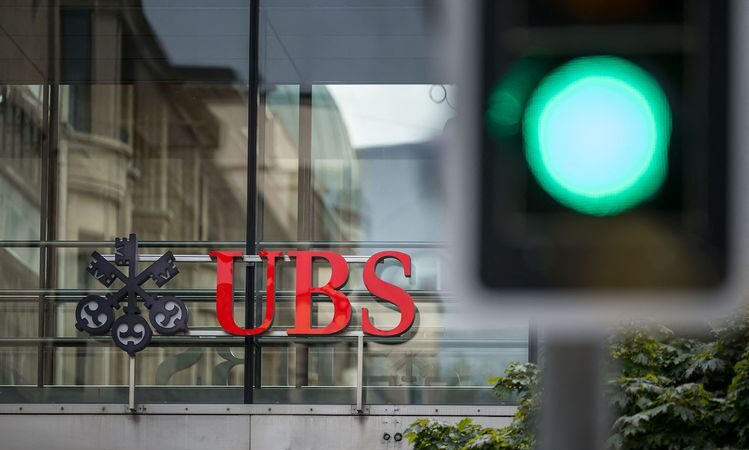
When UBS acquired Credit Suisse in March, dealmakers in its UK team created a presentation that outlined everything bankers working at its cross-town rival needed to know about their new colleagues. In it was information about people in key roles, deals they’d worked on, major clients and their personal interests.
Credit Suisse bankers created their own version in response, helping break the ice between two former competitors as they entered into a forced marriage pushed through by the Swiss government.
If this seems like an elaborate courtship between two rival teams of dealmakers, it proved to be a shrewd move. While UBS has struggled to retain scores of Credit Suisse bankers through the acquisition, around 20 people in the UK deals team have moved across. This has bolstered UBS’s unit, which previously had 30 or so bankers.
Its dealmakers say it is one of the biggest moves of any country team in the investment bank.
READ UBS bolsters research team with 45 senior Credit Suisse analysts as integration continues
The UK investment banking fee pool is the biggest in Europe, but it is a notoriously difficult market to crack. Corporate brokers — which are often the first call when UK clients decide to IPO or kick off a strategic transaction — rely on deep, sticky relationships. Gaining market share is therefore tough without acquisitions or big team liftouts.
“We got everyone together, we spoke about the strategy, about the ambition and the optimism we have for our UK global banking business,” said David James, co-head of UK investment banking at UBS. “It brought a human touch and it has made the transition much smoother.”
UBS executives have spoken about how the Credit Suisse acquisition can “accelerate” its ambitions for the investment bank. But these comments have primarily focused on a build-out in the US, where it is smaller than many of its European rivals, and in key sectors like technology and healthcare.
UBS has struggled to retain senior Credit Suisse dealmakers over the past eight months. Mergers between investment banks invariably lead to destabilised bankers jumping for a new opportunity. The sudden disappearance of Credit Suisse stock after the takeover made their dealmakers easy pickings for rivals.
Citigroup, Deutsche Bank, Evercore and Santander have all swooped on senior bankers from the Swiss bank, with dozens leaving since the $3.25bn UBS takeover was announced in March.
“Investment banking mergers are notoriously tough because it’s a people business,” said Jonathan Grundy, who moved from Credit Suisse to become co-head of UK investment banking at UBS in August. “But the investment and commitment being made by UBS, and the quality of the franchise it creates provides a serious opportunity for us to go after the top US banks, and that is an exciting prospect for our bankers.”
As well as Grundy, other senior UK bankers at Credit Suisse to make the switch include Matt Hall, James Green, John Hannaford, Joe Hannon, Stephen Pick and Ben Deary. Meanwhile, managing director Dimitri Reading-Picopoulos has departed for BMO Capital Markets.
UBS’s UK team broker around a third of the FTSE-100, according to Adviser Rankings, while Credit Suisse had 11 such clients at the end of last year. So far in 2023, amid a dearth of UK IPOs and low M&A volumes, the combined banks brought in $84m in fees and rank 10th, according to data provider Dealogic.
READ UBS to cut up to 147 jobs at Credit Suisse’s Brexit hub
The Credit Suisse takeover presents a rare opportunity for UBS to move up the rankings. Grundy said that it was a chance for the “combined team to meaningfully grow market share in the UK”.
“We want to be the leading European bank in the UK and we believe that with the combined resources we can compete with anyone,” he said. “What we’re doing day to day is making sure we’re the most impactful with our clients and delivering the best solutions. Over time, this is what will make the difference.”
“We’ve now got a much better platform, and we have additional team resources and a fantastic client base already, so that all suggests we should be in a better position than we are currently,” added James. “It’s not going to be overnight, but we should be challenging for a higher spot in the league tables.”
The UK typically accounts for around 30% of European dealmaking fees and several investment banks have recently made pushes to gain market share.
Deutsche Bank’s £410m acquisition of the biggest City broker Numis completed in October. That saw its UK dealmaking team swell from 35 to 155 bankers.
But the German lender had already been on a hiring spree of UK specialists over the previous two years, as it looked to reduce its reliance on its home market for dealmaking fees.
Meanwhile, BNP Paribas is also building its UK team as part of broader ambitions to become a top-five investment bank in Europe, and Goldman Sachs installed new corporate broking leaders as it guns for more clients.
“The UK is one of the most competitive investment banking markets in the world, and it has just become more competitive with some of our peers making significant pushes,” said James.
James said that there could still be some fallout from the team, and that UBS’s push in the UK will be a project that takes years, rather than months. But the Credit Suisse takeover has added more firepower to the Swiss bank.
Sign up to FN’s weekly investment banking newsletter here
To contact the author of this story with feedback or news, email Paul Clarke





